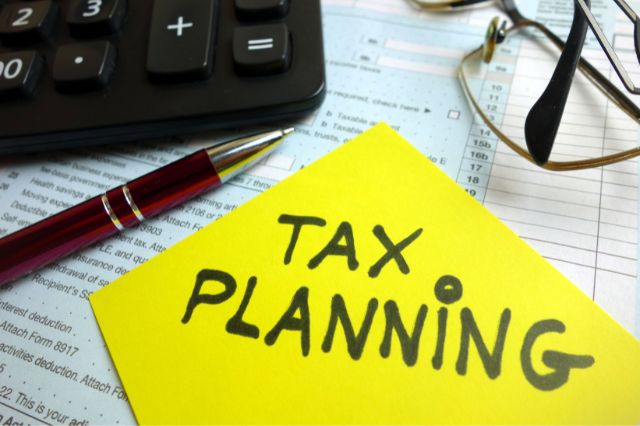Money
6 Tips to Save Money for Monthly Expenses

“Your salary is credited”.
This message on your phone when it’s the month-end is the key to happiness in every employee’s life. While it feels tempting to spend all the money on your wishlist, it’s important to understand the concept of investing and saving.
Investments and savings are directly related. If you invest in your savings regularly, it will give you good returns after a certain period of time.
It also helps you to manage your monthly expenses which can become an issue for most people. Speaking of which, most people actually don’t know the correct way of saving their money.
According to a recent survey, 25% of respondents confessed to having no emergency savings at all. That is not at all a good figure, considering how many jobs get lost in a matter of days when a pandemic like Covid-19 hits the world.
The correct way of saving is by dividing your income into wants and needs and saving the rest to an emergency fund. This emergency fund should be enough to sustain you for the next 3-4 months. Still confused, how to do it?
Then let’s check out these 8 effective ways to save money.
1. Prepare a budget
Preparing a budget prior to receiving your monthly salary will do half your work. When you make a budget for yourself, it will help you figure out how much each part of your lifestyle can be maintained at a minimal cost.
It can be entertainment, leisure, food, groceries, rent, electricity among others. By giving you the idea of where you are overspending, it will further help to come to a plan where you’ll be able to limit your spendings on unnecessary items.
2. Track down your savings
Apart from making a budget, tracking down your savings also becomes immensely helpful when it comes to saving. It targets your psychological reaction to make you aware of your expenses. This reaction makes you more focused on your prepared budget and hence saves your income.
There are several apps available on the internet that can help you record your expenses, track them, and notify you from time to time.
This can also be very helpful in the month when you will sit down with all your credit cards and bank statements to prepare a new budget.
3. Find ways to cut down expenses
There are always certain areas of your life where unnecessary expenditure happens. You might have already got the idea as this line ends. So, now that you have got it figured out, find a way to reduce that expenditure.
Delete any unnecessary subscriptions to newsletters, groups, Netflix, and gym (maybe). You will be surprised to see how much money you will save at the end of the month.
4. Set goals
Develop some short-term and long-term goals – both must be different. Short-term goals must allow you to spend the whole month without any roadblocks, fulfilling insurance payments, investing some amount every month, being financially stable, and more.
Whereas long-term goals must be buying an asset (car or land), gaining returns from investments, paying lower insurance premiums, having enough emergency funds.
This list can vary according to what kind of life you want to live. But make sure you do this important step. It will keep you focused on your path and push you to hit your goals consistently.
5. Use credit cards
Credit cards are the most amazing tools you can use to save up your money and also help yourself out in the future.
Since there is a possibility of financial issues during the month, if you use the credit card you will have access to your needs immediately and then you can pay the amount easily at the start of the new month.
Also, maintaining a good credit score will accompany you to reaching your long-term goals such as taking loans for a car or a house.
6. Optimize a priority list
Make some priorities in your life that are financially related. It can be insurance or educational savings for your child or your next business venture.
Your priority list will help you tick off these issues and make it easier to enjoy the luxuries without any worries.
Over to you…
The key to saving money is to be consistent and practice self-control. Just doing these two things for the next 10 years will keep you tension-free for the next 60 years. So, start now!
Money
Wanna Win at Gambling? Here’s What You Should Do


Any casino game has the potential to drain all of your funds if you’re not careful. Therefore, picking the gambling games with the best winning odds is crucial. Otherwise, you can find yourself spending all of your money on games.
How do you determine which games have the best odds, then? To provide you with the top casino games for winning money, we have done a lot of research for this article. By doing this, you can place wise bets and win large. However, it should be noted that gambling harms your finances and might become addicting.
The Best Online Casinos
We advise researching your selected casino before playing at any online casino. You have to check the games’ game compatibility with your devices and Internet connection speed, as well as the payment % and payout speed. Some games you can play include casino slot machines online and baccarat.
Low House Edges
There is a house edge in every casino game. In essence, this is the casino’s statistical edge over the player. So try to pick games and bets with the smallest house edge possible if you want to win.
For instance, the straightforward one-roll “proposition bets” in craps are known to have a bigger house edge than the pass line wager. This is because it pays 30:1 to “hop the hard 10” (bet that the next roll will be a five and a five, which is more difficult to roll than a six and a four).
Refresh your knowledge of your tactics to make sure that your wagers and plays will keep the odds in your favor.
Moving On
Occasionally, a session starts off with you in a downward spiral. It’s critical to keep in mind that this does occasionally occur statistically.
Please keep your cool. You have to try to win it right away by placing larger bets or taking riskier risks when the house edge is low. There is even a phrase for this tendency in poker: “tilt.” Other players become aware of it and profit from your bad choices as soon as this occurs.
Recognize when you are losing consistently, accept these losses, and resist the urge to wager more than the session bankroll.
Invest in Strategy
For games of chance, luck plays a crucial role in your wins. However, your skill in strategy is another factor that comes in handy. Players compete against one another in strategy games like poker. More often than not, knowledgeable players triumph over less experienced ones because they know how to manage their bankroll and what to do at crucial betting moments. Numerous free educational resources, including Blackjack Academy, are available and beneficial.
You can always have a little knowledge when playing a strategy game for real money.
Quit While on a Streak
In online casino games, it can be tempting to keep betting when you are on a winning run to increase your winnings.
However, in the long run, it is more probable they will lose the cash they just earned, yet this is a common trap many gamers fall into. Therefore, even if you win more than your anticipated amount, you should make a budget and adhere to it.
Wrapping Up
How to win at casino games has no one right answer. A few strategies may help you prevail, though. First, you can participate in a gambling game with a minimal wager. Doing so boosts your chances of winning and receiving extra turns.
Money
5 Simple Ways to Grow Your Wealth


Regardless of your financial situation, there are plenty of ways to grow your wealth. These ideas are simple and will have you on your way to financial freedom.
Tax refunds
Using tax refunds to improve your financial situation and well-being is not something to be overlooked. Not only can you use the money for an emergency fund, but you can also invest it in your future.
Investing in your tax refund can make you feel more secure and provide peace of mind. Of course, tax refunds may be less exciting than an exotic vacation. Still, they are just as crucial to your overall well-being.
Investing your tax refund in the stock market can be a great way to improve your financial well-being. Stock Rover offers a two-week free trial of their Premium Plus plan. You don’t need a credit card to sign up for this trial, and you’ll receive unlimited access to research reports. Reviewing Motley Fool Stock Advisor vs. Stock Rover will give you the best stock-picking services and provide real-time data on company reports and analyst recommendations. So not only will your money be secure, but you can also get a head start investing for retirement and pay off your debts.
Single-family house
Having a single-family home is an excellent way to grow your wealth. It has numerous advantages, and it’s also very easy to finance. It also offers complete control of the investment. However, there are some disadvantages.
First, the house is not designed for renting. Therefore, you cannot change the floor plan. However, there are ways to overcome these hurdles. For example, you can remodel the property into a special needs home, an assisted living facility, a duplex, or a bed and breakfast.
Second, rents for single-family homes are rising. Rent prices for single-family homes in the United States are expected to increase by 6.6% in 2020. This is the highest increase in 16 years. As a result, inflation is expected to reach nine percent in 2022. It is also likely that household formation will continue to increase.
Investing in blockchain
Investing in cryptocurrency isn’t for the faint of heart. This type of investment is a volatile gamble. The price can go up and down, and you could lose all your money. However, it can also help you grow your wealth. While investing in crypto may sound like a cynical ploy, it’s an effective way to gain exposure to emerging technology. You can do this indirectly by buying stocks of companies with a crypto stake.
Cryptocurrencies can help you hedge your other investments. Some even pay high yields. However, investing in crypto is still in its infancy. So be sure to educate yourself on the industry. In addition, you’ll want to watch the drive and follow the best practices to minimize your risk.
Identifying low-cost risks
Identifying low-cost risks is a must if you want to grow your empire. One of the best ways to do this is to get your hands on the latest security technology. By taking an integrated approach to security, you can avoid costly and time-consuming lockouts and snatch of keys. This is especially true if you’re a small business owner. The most crucial component is to find an empathetic and educated partner. Thankfully, there are many vendors to choose from. Some companies even offer an integrated and secure one-stop shop for all your security needs. You’ll be glad you found them. For more information, contact a certified security specialist today. Using a security guard with a proven track record is a great way to ensure the safety of your employees and your organization’s reputation.
Hiring a financial advisor
Whether you are trying to get out of debt, looking for tax advice, or want to maximize your wealth, hiring a financial advisor can help. A financial advisor will analyze your needs, find the best investment opportunities, and recommend an investment product.
Before you hire an advisor, you should know how the advisor will be paid. Some advisors will work on a commission basis, while others will charge a flat or hourly rate. Ultimately, you want to find someone who puts your best interests first.
Some financial advisors are fiduciaries, so they must put your interests first. This means they must be completely independent of any other influences and make their recommendations only in their best interest. Others work as non-fiduciaries, which means they earn money by selling products. For example, they may earn commissions from investments they sell.
Money
Tax Planning for Beginners: Useful Strategies & Best Practices to Know


According to a 2021 report from the United States Sentencing Commission, 370 people in the United States were involved in defrauding the state, with 63.3% sent behind bars.
While intentionally evading these contributions is the number one reason why many are convicted of such crimes, some are slapped with huge fines and possible jail time due to a lack of knowledge.
But did you know that planning your taxes can lower your burden, help you stay on the right side of the law, and even increase the amount of money the government refunds?
This article will uncomplicate tax planning, explaining what it is and sharing invaluable strategies that will minimize what you pay now and in the future.
What is Tax Planning?
This is the process of scrutinizing and organizing an individual’s or organization’s taxes to minimize their debt.
In other words, it’s a strategy that puts people and businesses at an advantage to pay a minimal contribution to state revenue while still abiding by the law.
Who is It For?
Tax planning services are perfect for:
- People with an income that is eligible for state revenue contributions
- Businesses
- Soon-to-be retirees
- People who have received a windfall or estate
5 Tax Planning Strategy Concepts for Beginners
The complexity of laws governing state revenues is undeniable, especially for beginners.
For this reason, we share helpful tax strategies and concepts that ensure you capitalize on various breaks and reduce your overall debt.
Know how much you should pay
The first tax planning strategy is knowing your income’s deductible percentage.
The United States, for instance, has seven tax brackets, and since its deduction system is progressive, many people don’t pay the same rates on the entire money they bring in.
What do we mean?
A person earning $10,000 will part with 10% of their entire income. However, a person earning $15,000 will contribute 10% of the first $10,000, then 12% for the remaining $5,000.
Note that these brackets differ for single filers and those filing jointly. Also, considering that they change from time to time to factor in inflation, talking to a professional helps you identify where you fall and the benefits you can leverage.
Understand credits and deductions
An excellent way to lower your debt especially if you are getting ready for retirement taxes is leveraging credits and deductions.
Deductions will reduce the amount of gross income while credits are deducted dollar for dollar from the debt. But considering they are more than a handful, knowing the ones you are eligible for is vital.
In this case, a tax advisor in Portland, OR can advise you on how best to take advantage of these benefits based on your financial situation, location, industry, or business.
Keep records of previous state revenue contributions
Having a trail of records that show your previous payments will not directly bring down what you owe but can be beneficial in case the IRS has its eyes on you.
The IRS is required to conduct audits within three years, but even with such statutes of limitations, there are exceptions. If, for instance, you filed fraudulent returns, didn’t file at all, claimed for a loss from bad debt or worthless securities, or only reported 75% of your income or less, make sure you keep your records as they may prevent or minimize penalties.
Take advantage of the health insurance deductibles
Did you know that the self-employed can deduct the premiums they pay as medical expenses from what they owe the state? And not only do they allow you to deduct the amounts paid for yourself but also those for your spouse, dependants, and non-dependants below 27 years.
However, you must be eligible for the deductions to enjoy the perks. Talk to a financial planner to find out if you qualify.
Which works best: standard deductions for itemizing?
Standard or itemized deductions are other legal tactics that you can leverage to pay fewer taxes. The former lowers your gross income by a preset amount while the latter involves using any set of eligible deductions to minimize your burden.
The one to pick depends on your unique financial situation, which is where professional tax planning advice comes in.
It’s not That Complicated
As daunting as it may seem, such planning is not overly complex. It’s about finding the ideal action plan that works in your favor even as your income increases and your business grows. Retirement tax planning, in particular, is what ensures you retain more money to use long after employment.
Still have questions?
Interactive Wealth Advisors are professional financial planners that will help you understand state revenue contributions and how to ensure you pay the least amount possible.
Book your consultation today.
-



 Captions3 years ago
Captions3 years ago341 Sexy Captions to Fire Up Your Instagram Pictures
-



 Captions3 years ago
Captions3 years ago311 Night Out Captions for Instagram and Your Crazy Night
-



 Captions3 years ago
Captions3 years ago245 Saree Captions for Instagram to Boost Your Selfies in Saree
-



 Captions3 years ago
Captions3 years ago256 Best Ethnic Wear Captions for Instagram on Traditional Dress
-



 Captions3 years ago
Captions3 years ago230 Blurred Picture Captions for Instagram
-



 Captions3 years ago
Captions3 years ago275 Deep Captions for Instagram to Express Your Thoughts
-



 Quotes3 years ago
Quotes3 years ago222 Nail Captions for Instagram to Showcase Your Fresh Manicure
-



 Captions3 years ago
Captions3 years ago211 Laughing Captions for Instagram | Laughter Is the Best Medicine







